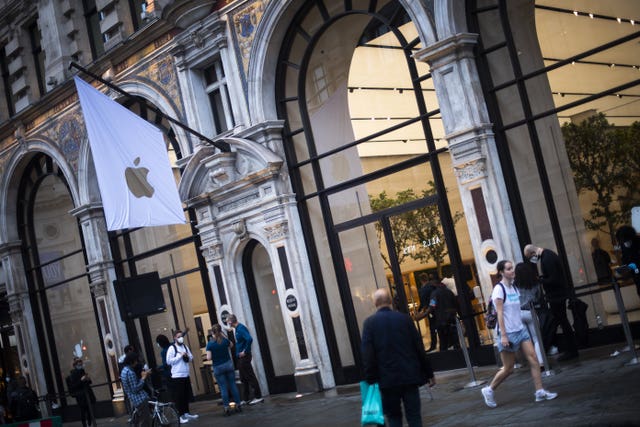
Iain Dale 7pm - 10pm
7 April 2025, 15:14

The iPhone maker has filed a claim at the Investigatory Powers Tribunal, judges said on Monday.
The Home Office has lost a bid to keep legal action brought by Apple against the Government private.
Last month, the Investigatory Powers Tribunal, a specialist tribunal which deals with allegations of unlawful intrusion and some national security matters, sat behind closed doors for an all-day hearing where the identities of the parties involved were not publicly known.
Multiple media organisations, including the PA news agency, asked the tribunal to confirm who was taking part in the hearing on March 14 and to sit in public.
Neither journalists nor legal representatives on behalf of the media were allowed into the hearing, and the identities of the parties involved were not disclosed.
However, in a public judgment on Monday, judges at the tribunal said the case relates to legal action brought against the Home Office by Apple over the power to make technical capability notices under the Investigatory Powers Act 2016.
In a nine-page ruling, Lord Justice Singh and Mr Justice Johnson said that “bare details”, including the identities of the parties, could be made public after a request from the Home Office that they remain private.
Lawyers for the Home Office told the hearing in March that it would be damaging to national security if the fact of the claim, or details, were published, the judges said.
They continued: “We do not accept that the revelation of the bare details of the case would be damaging to the public interest or prejudicial to national security.”
Lord Justice Singh and Mr Justice Johnson later said it could be possible “for some or all future hearings to incorporate a public element, with or without reporting restrictions” but that could not be decided at this stage.
It was previously reported that Apple was bringing legal action over the UK Government’s request to access data covered by Apple’s Advanced Data Protection (ADP).

The ADP is an opt-in tool on Apple’s iCloud service which meant only an account holder could access the “majority” of file types such as photos or notes, as they were end-to-end encrypted – meaning even Apple cannot access them.
The Government issued an order under the Investigatory Powers Act 2016, asking for the ability to access this data from Apple users, according to reports.
The iPhone maker subsequently said that it was withdrawing the tool from use in the UK, turning it off as an option for those not already using it, and will introduce a process to move existing users away from it.
Lord Justice Singh and Mr Justice Johnson said that neither Apple or the Home Office had confirmed or denied that these reports were accurate.
“This judgment should not be taken as an indication that the media reporting is or is not accurate,” the judges added.
Following the ruling, a Home Office spokesperson said: “We do not comment on legal proceedings. Nor do we comment on operational matters, including confirming or denying the existence of individual notices.
“The Government’s first priority is to keep people safe. There are longstanding and targeted investigatory powers that allow the authorities to investigate terrorists, paedophiles and the most serious criminals and they are subject to robust safeguards including judicial authorisations and oversight to protect people’s privacy.
“Those powers have saved lives, prevented incredibly serious terrorist plots against the UK, and put dangerous criminals behind bars.
“We have made clear that those targeted investigatory powers alongside strong judicial safeguards must be sustained as technology changes, as they continue to be essential to keeping our country safe.
“Technology companies need be able to innovate and improve security, but unilateral moves which prevent investigations into terrorism or serious child abuse put public safety at grave risk. These powers are purely about preventing serious crime and pursuing criminals, and do not affect our commitment to free speech.
“The Investigatory Powers Act and Technical Capability Notices allow the UK to maintain existing and long standing counter-terrorism and serious crime investigative capabilities in the face of fast changing technology, especially when we know that terrorists and child abusers organise and seek to hide evidence of their crimes online.
“TCNs themselves do not directly provide access to data – relevant targeted warrants and authorisations must also be in place. Nor do TCNs extend powers to obtain access to data; their purpose is to ensure that those existing powers can continue to be exercised effectively.
“The Government believes both in protecting privacy and in ensuring that the most serious crimes and terror threats can be investigated or stopped. Let us be clear: any suggestion that this is a binary choice between public safety and privacy is incorrect. We can, and must, have both. “